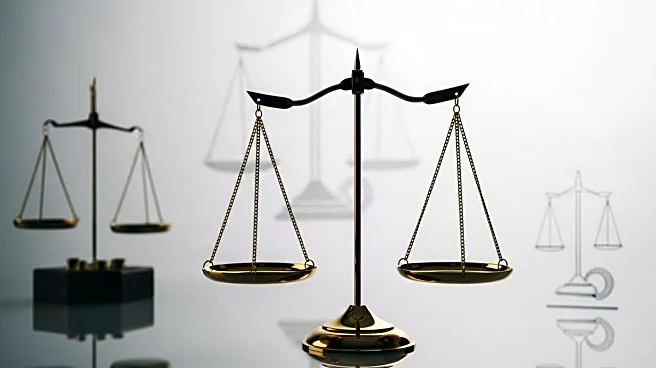What's Happening?
Special Assistant Attorney General Devon Flanagan of Rhode Island has been placed on unpaid leave for six months following an incident captured on police body camera footage. Flanagan was arrested on August 14, 2025, outside a Newport restaurant on trespassing charges. During the arrest, she warned officers that they would 'regret' their actions. The footage shows Flanagan repeatedly identifying herself as an 'AG' and asking officers to turn off their body cameras. The state attorney general, Peter Neronha, announced the disciplinary action, emphasizing the importance of maintaining high personal and professional standards. Flanagan has apologized to the officers involved, and the attorney general's office has expressed hope that she will reflect on her conduct.
Why It's Important?
This incident highlights the challenges of maintaining professional conduct within the legal system, especially for those in positions of authority. The suspension of Flanagan underscores the expectation that legal professionals adhere to ethical standards, regardless of their status. The situation may impact public trust in the legal system and the attorney general's office, as it raises questions about accountability and the consequences of misconduct. The broader implications could affect how similar cases are handled in the future, potentially leading to stricter oversight and disciplinary measures for legal professionals.
What's Next?
Flanagan faces a potential misdemeanor conviction for willful trespass, which could result in up to a year in jail or a fine. The outcome of her case may determine her future employment with the attorney general's office. The incident may prompt discussions within the legal community about the importance of ethical behavior and the need for ongoing training and support for legal professionals. Stakeholders, including legal associations and civil rights groups, may advocate for reforms to ensure accountability and transparency in the legal system.
Beyond the Headlines
The incident raises ethical questions about the use of authority and the responsibilities of legal professionals. It may lead to a broader conversation about the culture within legal institutions and the pressures faced by those in high-stakes roles. The case could serve as a catalyst for examining how power dynamics influence interactions between law enforcement and legal professionals, potentially leading to policy changes or educational initiatives aimed at fostering ethical conduct.









